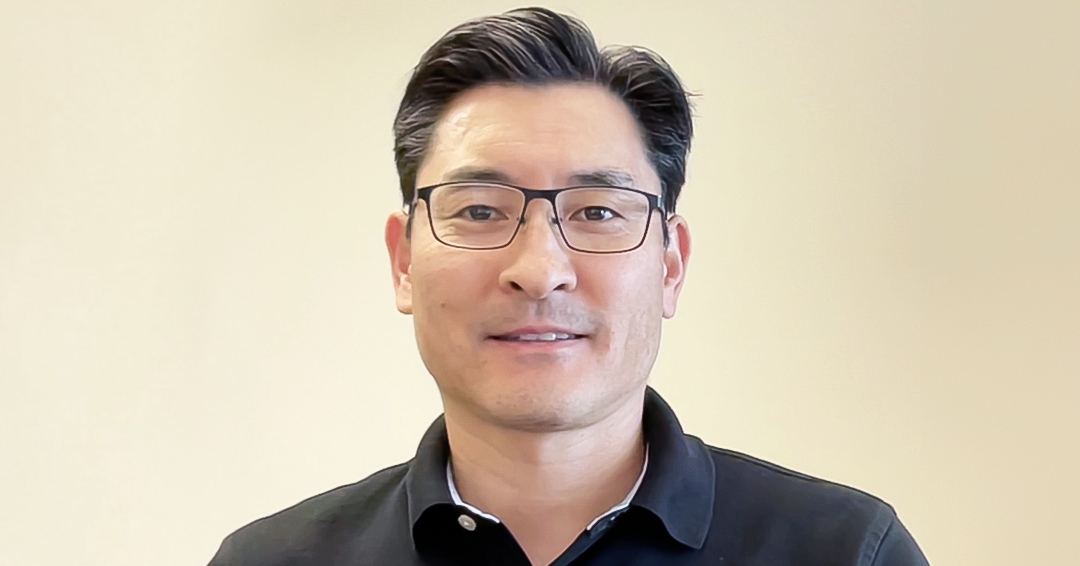
In July, Keith Murai, PhD, took on the role of Associate Dean and Director, School of Biomedical Sciences (SBMS). A neuroscientist and Professor in the Department of Neurology and Neurosurgery at McGill, Prof. Murai is widely recognized for his work on brain development and plasticity. He has also held other leadership roles in the Faculty of Medicine and Health Sciences, as well as at the Research Institute of the McGill University Health Centre (RI-MUHC) and the Canadian Association for Neuroscience. We sat down with Prof. Murai to talk about his priorities in his new role, the challenges he anticipates and what motivates him as a researcher, educator and leader.
How have you settled into the role over the past few months?
It has been a fantastic experience from the start. I had the chance to speak with so many wonderful people – chairs, directors, professors, staff and students – and gather important information about their interests as well as challenges and opportunities they see for the School. People are excited about the School, what it represents, and its potential.
What I have learned from my conversations is that the School is a unique point of convergence for outstanding biomedical science education and interdisciplinary training and research. While the School is a complex ecosystem that encompasses multiple disciplines – anatomy and cell biology, biochemistry, biomedical engineering, human genetics, microbiology and immunology, pharmacology and therapeutics, and physiology – it is a cohesive environment with much to gain through synergy among its individual departments and institutes.
Have you had an opportunity to identify the priorities that will guide you?
A fundamental mission of the SBMS is to offer high-quality education and training in biomedical science. The School is fortunate to educate the brightest students in Quebec, Canada and beyond in our undergraduate, graduate, and medical/health professions programs. These educational programs tap the knowledge and expertise of dedicated professors and staff within the School and requires them to be at the top of their game in delivering high-quality education. The School needs to lead in delivering new programs and opportunities that build upon the strong knowledge base of our students and enable them to be major contributors and leaders in biomedical science. The School is working towards offering new ways to promote interdisciplinarity and integrate emerging areas such as data science and translational research. Training in these areas will broaden student experiences and help them prepare for rewarding careers in science, medicine, government and industry.
In addition to education and training, research is a cornerstone of the SBMS. The School is home to world-renowned researchers leading impactful research programs and making groundbreaking biomedical discoveries. To continue to be at the forefront, the School must invest in these researchers and provide an enriched scientific environment. The School must also be able to continue to attract new faculty who bring with them important capacity in terms of exciting research programs, technologies and energy.
An important strength of the School is interdisciplinarity. While our departments help to build disciplinary knowledge in biomedical science, the School is really built for bridging these disciplines to advance knowledge and improve our understanding of human health. For students, this means that the School will provide them a high-quality education in biomedical disciplines and provide opportunities to apply principles and approaches to bridge gaps between disciplines. Interdisciplinary training and research are key drivers of major discoveries and innovation in most areas of science including neuroscience, cancer, immunology and biomedical engineering.
Do you foresee any challenges in moving these priorities forward?
The SBMS is in a great place to learn, train and perform research thanks to our dedicated students, staff and faculty. This is enabled by the School’s intellectual capital and the depth of our knowledge base and expertise. However, a significant financial investment is needed to educate our students and sustain our cutting-edge biomedical research. New technologies are allowing incredible discoveries and rapidly changing the way science is performed. These technologies, while often expensive and difficult to access, are necessary to enable pioneering fundamental and translational research and foster scientific innovation. However, in order to afford these technologies, we will need to find support through Quebec, Canada, and transformational gifts from philanthropic donations.
While McGill is a wonderful environment to learn and train, and has a storied history, its aging infrastructure presents a critical challenge. Some of the SBMS departments are close to 200 years old. Many of our buildings were built many decades ago. While these buildings are steeped in history and tradition, these facilities require modernization to support advanced training and research and to create an optimal learning environment. An important goal of mine is to work towards ensuring that our researchers have access to modern, sustainable facilities that can support the very best possible biomedical science education, training, and research.
Although the SBMS itself was founded in 2020, it unites several departments and institutes that have made game-changing discoveries in their fields. How does it feel to take on this leadership role in a School that has shaped a lot of McGill’s history?
It is an honour to represent the SBMS as its Associate Dean and Director. I would like to thank my predecessors Alba Guarné, PhD, and Alvin Shrier, PhD, for their insight, creativity, hard work and dedication in establishing the School and building its momentum. It is humbling to look back at the history of the SBMS departments and units and reflect on their successes over decades – in some cases, for more than a century. I feel very fortunate to help the School look to the future, and build a new vision for biomedical education, training and research.
You have previously served as Director of McGill’s Centre for Research in Neuroscience at the Montreal General Hospital, Leader of the Brain Repair and Integrative Neuroscience Program at the RI-MUHC, as well as several other leadership roles. What have you learned from those experiences?
My previous roles at the RI-MUHC allowed me to learn how to bridge fundamental and clinical research. These experiences also helped me to navigate complex training and research systems and environments and stay focused and grounded in terms of what the long-term goal is, which, for biomedical science research, is to help people and improve human health.
What has motivated you as a researcher, and in your leadership roles to date?
Being a McGill professor, a researcher and an educator is truly a privilege. This profession allows me to interact with exceptional students, staff and faculty members with common goals. It also allows me to unlock my own creativity. I wake up every morning realizing how fortunate I am to be in this situation and to be able work at McGill. For my own research, I study the brain. Being able to immerse myself into this field, discuss experiments and results with bright, motivated students and postdoctoral fellows and develop ideas that can lead to a better understanding of human health is a motivating factor. Very few professions allow such freedom.
Related:
Keith Murai appointed Associate Dean and Director of the School of Biomedical Sciences, FMHS

